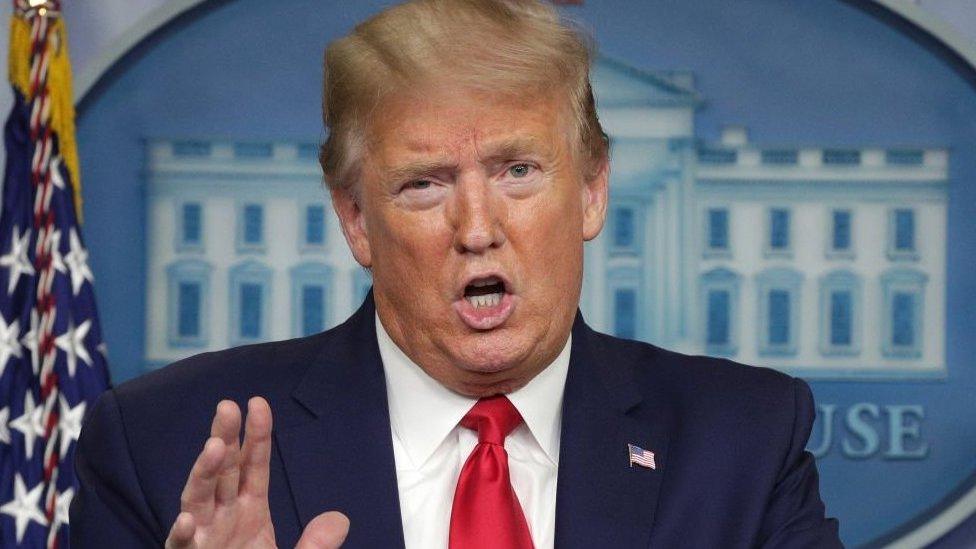Donald Trump's immigration ban could hit tech sector
- Published

President Donald Trump's immigration ban could be a big blow for the fast-growing US technology sector.
A rising number of migrant workers, particularly from Asia, head to the US to work in Silicon Valley.
Alongside Mexico, China and India now provide large numbers of the new working population.
This supply of talent could soon be cut off under Mr Trump's temporary ban, aimed at stopping the virus spreading and protecting American jobs.
According to Pew Research Center, more than one million immigrants arrive in the US each year, although this figure has fallen in recent years.
In 2017, India accounted for most of the new foreign workforce, followed by Mexico, China and Cuba.
"This will definitely impact immigration movements into the IT sector in the US from India and China, being two countries with large migration numbers globally, " said Latha Olavatth at immigration specialist Newland Chase.
"China and India also have other business sectors where the ban will impact their movements to the States, further crippling trade and the economy adversely."
According to Pew Research Center, almost half of immigrants live in just three states - New York, Texas and California, home of Silicon Valley, where tech giants such as Google, Facebook and Cisco are based.
"Trump's immigration ban will hurt US tech companies' ability to recruit the talent necessary to remain competitive and focus on innovation," said Shaun Rein, managing director of the China Market Research Group.
"Instead of staying in America and building America's tech prowess, top talent will return to their home countries and build the next round of innovation powerhouses."
US companies are battling it out with Chinese internet giants such as Alibaba and ByteDance in the field of innovation.
"Now, with the immigration ban, more top Chinese, Indian and other foreign talent will seek jobs in tech hubs globally like Shenzhen, Seoul and Bangalore rather than Silicon Valley. They will push invention and innovation in software, hardware and in semi-conductors," Mr Rein added.
When Mr Trump imposed travel bans on immigrants from seven Muslim-majority countries in 2018, tech firms voiced their disapproval.
"Apple would not exist without immigration," Apple chief executive Tim Cook said at the time. He was joined by the heads of other tech giants, including Amazon founder Jeff Bezos, who spoke out against the travel bans.
Before Tuesday's announcement, the US government had been debating how man migrant workers to allow into the country under its seasonal H-2B programme.
Pressure has been growing on policymakers to slow immigration as the number of Americans who have lost their jobs during the coronavirus downturn moves above six million.
The executive order that temporarily suspends all immigration does not apply to farm workers and healthcare workers. It is not expected to include legal immigrants already in the US.